📑 Table of Contents
- What is RCS?
- Historical Background of Messaging Services
- The Evolution to RCS
- RCS on iPhone: A New Era!
- Why is RCS Important?
- YepText: Leading the RCS Revolution!
- Transitioning to RCS
- The Future of Messaging
- RCS in Everyday Use
- RCS for Businesses
- How RCS Works!
- Security and Privacy
- Integration with Other Technologies
- Advancements in Features
- Challenges and Considerations
- Practical Applications of RCS
- RCS vs. SMS
- RCS vs. OTT Messaging Apps
- The Role of YepText in the RCS Ecosystem
- Enhancing Customer Experience with RCS
- Best Practices for Implementing RCS
- Future Prospects of RCS
Rich Communication Services (RCS) is transforming how we send text messages. This advanced messaging protocol offers a richer experience than traditional SMS. Recently, Apple rolled out RCS support on iPhones, aligning with the capabilities Android users have enjoyed for years. This update marks a significant milestone in the messaging world.
What is RCS?
RCS stands for Rich Communication Services. It’s an upgrade from SMS, offering enhanced features like:
- High-resolution images
- Read receipts
- Typing indicators
- Group chats
- Improved media sharing
These features make RCS a more versatile and engaging messaging platform.
Historical Background of Messaging Services
To fully understand RCS, it’s essential to look at the history of mobile messaging. SMS, or Short Message Service, was introduced in the 1990s and quickly became a standard form of communication. Despite its popularity, SMS had several limitations:
- Text-only messages
- 160-character limit
- Lack of real-time interactivity
Multimedia Messaging Service (MMS) was introduced to address some of these limitations. MMS allows users to send pictures, audio, and video. However, it had challenges, including higher costs and inconsistent support across different devices and carriers.
The Evolution to RCS
RCS was developed to bridge the gap between SMS’s simplicity and the advanced capabilities of modern messaging apps like WhatsApp and Facebook Messenger. The goal was to create a universal standard that carriers and phone manufacturers worldwide could adopt.
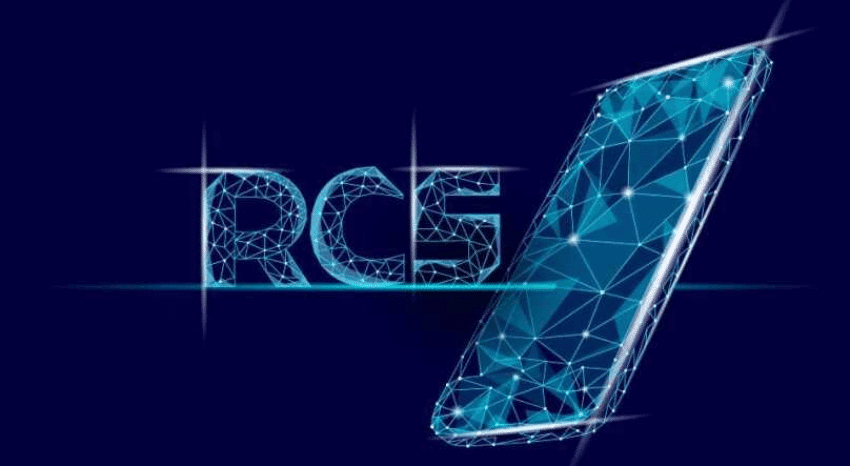
Key Features of RCS
- Enhanced Media Sharing:
- Send high-resolution photos and videos.
- Share larger files without compression.
- Interactive Messaging:
- Typing indicators show when someone is typing.
- Read receipts to confirm message delivery and reading.
- Group Chat Management:
- Add or remove participants easily.
- Manage group settings and permissions.
- Location Sharing:
- Share your location in real time with friends or family.
- Business Messaging:
- Receive interactive messages from businesses.
- Make reservations, track deliveries, and more directly within the chat.
RCS on iPhone: A New Era!
Apple’s introduction of RCS on iPhones is big news. Until now, iOS users relied on iMessage or basic SMS for communication. With RCS, iPhone users can now enjoy the same rich messaging features Android users have had for years. This integration promises to streamline communication between devices, breaking down the barriers between iOS and Android users.
Implications for Users
This means a more unified messaging experience for users. No longer will the type of phone dictate the quality of messaging. This is particularly beneficial in group chats where participants use different devices.
Business Implications
For businesses, Apple’s adoption of RCS opens new avenues for customer engagement. Companies can reach a broader audience with rich, interactive messages, enhancing customer service and marketing efforts.
Why is RCS Important?
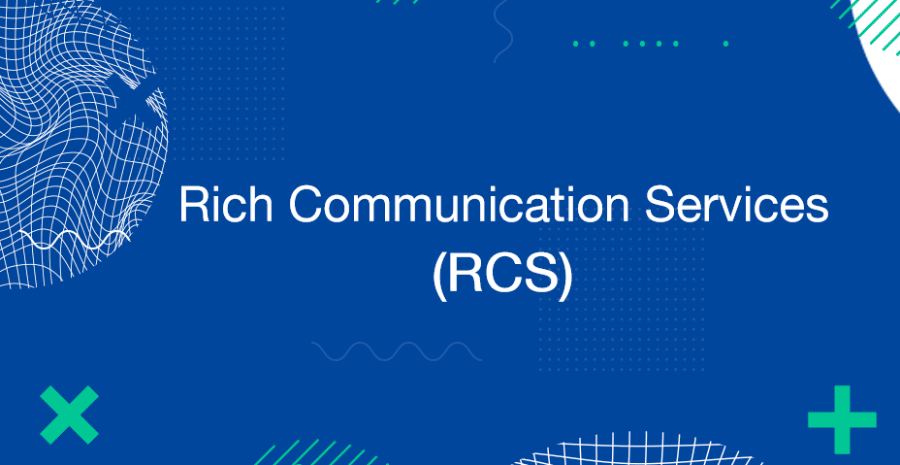
RCS offers several benefits over traditional SMS:
- Enhanced Multimedia: Send high-quality images and videos without compression.
- Interactive Messaging: Enjoy features like read receipts and typing indicators.
- Group Messaging: Manage group chats more efficiently with advanced controls.
- Seamless Integration: Works within the native messaging apps, providing a unified experience.
These advantages make RCS a preferred choice for modern communication.
User Experience
One of the primary reasons for RCS’s importance is the user experience. RCS brings the functionality and richness of modern messaging apps to the default messaging app on your phone, meaning users don’t need to download and manage multiple apps to enjoy these features.
Industry Standardization
Another critical aspect is standardization. RCS is backed by the GSMA, a global association representing mobile operators and organizations. This backing ensures RCS is a standardized protocol, fostering interoperability across different networks and devices.
YepText: Leading the RCS Revolution!
YepText is one of the leading providers of RCS messaging. Their platform leverages the power of RCS to offer businesses and individuals a superior messaging experience. With YepText, users can:
- Engage customers with rich media
- Track message interactions
- Create dynamic and interactive messaging campaigns
This makes YepText a valuable partner for anyone looking to enhance communication strategies.
YepText’s Features
YepText offers a suite of features designed to maximize the potential of RCS:
- Customizable Messaging Campaigns:
- Design messages with rich media, interactive buttons, and personalized content.
- Analytics and Insights:
- Track delivery, open rates, and user interactions in real time.
- Automation:
- Automate customer responses, follow-ups, and marketing campaigns.
- Integration:
- Seamlessly integrate with CRM systems and other business tools.
Success Stories
Several businesses have successfully used YepText to transform their customer communication. For example, a retail company saw a 30% increase in customer engagement after switching to RCS messaging with YepText. Another case involved a restaurant chain that improved reservation management and customer satisfaction through interactive RCS messages.
Transitioning to RCS
Transitioning from SMS to RCS is straightforward. Most modern smartphones support RCS out of the box; updating the messaging app or system software usually enables RCS for those that don’t. This ease of transition ensures that users can quickly benefit from the enhanced features without hassle.
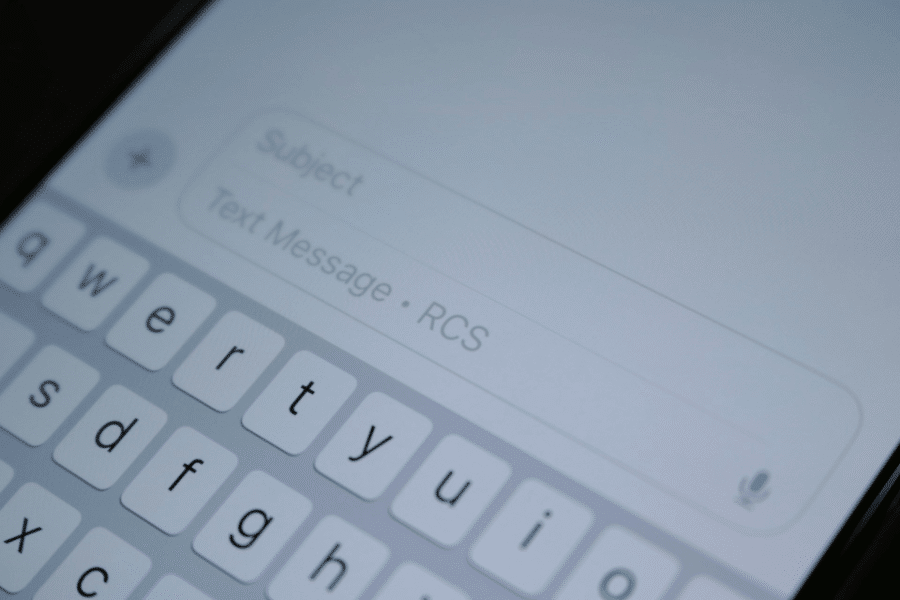
Steps to Enable RCS
- Check Compatibility:
- Ensure your device and carrier support RCS. Most newer smartphones do.
- Update Your Messaging App:
- Download the latest version of your messaging app if needed.
- Enable Chat Features:
- Go to your messaging app settings and enable chat features or RCS.
- Start Messaging:
- Enjoy the enhanced features and start exploring the capabilities of RCS.
Challenges and Solutions
While transitioning to RCS is generally smooth, some users may face challenges:
- Carrier Support: Not all carriers support RCS. Check with your carrier for compatibility.
- Device Compatibility: Older devices may not support RCS. Consider upgrading if necessary.
- Interoperability: Ensure that the people you communicate with also have RCS enabled for the best experience.
The Future of Messaging
The adoption of RCS by both Android and iOS marks a significant step towards unified communication. As more users and businesses switch to RCS, we can expect further innovations and improvements in how we connect with each other.
Emerging Trends
- Integration with AI:
- AI can enhance RCS by providing smart replies, predictive text, and more.
- Enhanced Security:
- Future updates may include end-to-end encryption, similar to other messaging apps.
- Expanded Business Uses:
- Businesses will continue to find innovative ways to use RCS for customer engagement, support, and marketing.
The Role of 5G
The rollout of 5G networks will further enhance the capabilities of RCS. With higher speeds and lower latency, 5G will enable even richer media sharing and real-time interactions.
RCS in Everyday Use
For personal users, RCS enriches everyday communication. Here’s how:
- Photo Sharing: Capture and share high-quality moments without worrying about compression.
- Group Chats: Manage family and friend groups more effectively, with easy participant management and dynamic media sharing.
- Real-time Feedback: You can see when your messages are read and when others are typing, making conversations more connected.
Professional Communication
Professionals can also benefit from RCS in various ways:
- Collaborative Projects: Share high-quality documents and images, making remote collaboration more seamless.
- Meetings and Scheduling: Use group chats to schedule meetings, share links, and coordinate tasks.
- Instant Updates: Send quick updates and receive immediate feedback through interactive features.
RCS for Businesses

Businesses are finding RCS to be a powerful tool for engaging with customers. Here’s how it’s changing the landscape:
- Promotions and Offers: Send visually appealing promotions with images, videos, and interactive buttons.
- Customer Support: Provide real-time support through chat, share troubleshooting videos, and track customer queries more effectively.
- Feedback and Surveys: Collect customer feedback through interactive forms directly within the messaging app.
Marketing Campaigns
Marketing through RCS is more dynamic and effective:
- Rich Media Ads: Create ads that include videos, images, and buttons for better engagement.
- Personalization: Tailor messages to individual customers, increasing the relevance and impact of your campaigns.
- Analytics: Track the performance of your campaigns with detailed analytics on delivery, read rates, and interactions.
Case Studies
- Retail Industry:
- A leading retailer used RCS to send personalized promotions, resulting in a 40% increase in sales during the campaign period. The rich media content and interactive elements led to higher customer engagement than traditional SMS campaigns.
- Hospitality Industry:
- A hotel chain adopted RCS for booking confirmations, customer feedback, and promotional offers. They saw a significant improvement in customer satisfaction scores and increased direct bookings, bypassing third-party booking platforms.
How RCS Works!
RCS operates over the internet, leveraging data networks instead of traditional cellular networks used by SMS. Here’s a breakdown of its technical workings:
- IP-Based Protocol: Uses Internet Protocol (IP) for message delivery, enabling rich media and interactive features.
- Carrier Integration: Requires support from mobile carriers to ensure messages are delivered over their networks.
- Universal Profile: A set of standards the GSMA defines to ensure interoperability between different carriers and devices.
Security and Privacy
While RCS offers many advantages, security remains a top concern. Current implementations of RCS vary in their security measures:
- Encryption: Some carriers implement encryption, but it’s not yet a universal standard. Future versions of RCS are expected to include end-to-end encryption.
- Privacy Controls: Users can manage their privacy settings, such as read receipts and typing indicators, to control what information is shared.
Integration with Other Technologies
The future of RCS looks promising with potential integrations:
- AI and Chatbots: Enhance customer service with AI-powered chatbots that can handle queries, make recommendations, and automate responses.
- IoT Devices: Integration with Internet of Things (IoT) devices for sending alerts and managing devices through rich, interactive messages.
Advancements in Features
We can expect continuous advancements in RCS features:
- Better Interoperability: Improved compatibility between different devices and carriers, ensuring a seamless experience for all users.
- Enhanced Multimedia Capabilities: Support for more types of media and larger file sizes, making it easier to share rich content.
- Business Messaging Innovations: New tools and features designed specifically for business communication, making RCS an even more powerful tool for engagement.
Challenges and Considerations
Despite its advantages, RCS faces some challenges:
- Carrier and Device Support: Not all carriers and devices support RCS, limiting its availability to some users.
- Standardization Issues: Variations in implementation can lead to inconsistencies in user experience.
- Competition with OTT Apps: Over-the-top (OTT) messaging apps like WhatsApp and Facebook Messenger offer similar features, posing competition to RCS.
Overcoming Challenges
Efforts are being made to overcome these barriers:
- Increasing Carrier Collaboration: More carriers are collaborating to adopt the Universal Profile, ensuring better interoperability.
- Consumer Awareness: Educating consumers about the benefits of RCS can drive higher adoption rates.
- Enhancing Security: Implementing end-to-end encryption and other security measures to build trust among users.
Practical Applications of RCS
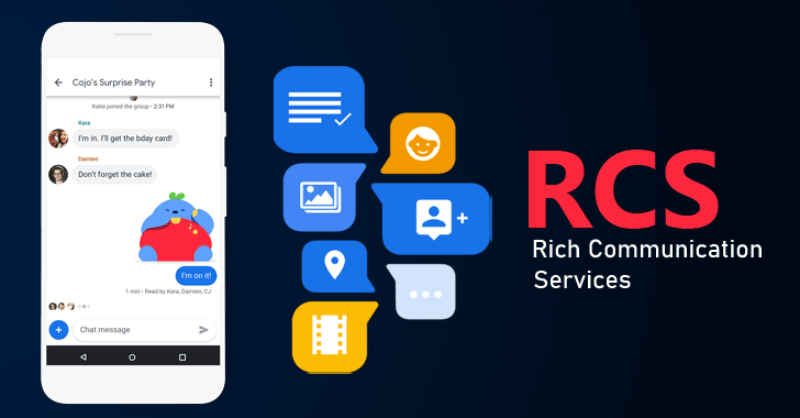
The healthcare industry is leveraging RCS to improve patient communication and care:
- Appointment Reminders: Send interactive reminders that patients can confirm or reschedule with a tap.
- Health Tips and Updates: Share personalized health tips and updates with high-resolution images and videos.
- Patient Support: Provide real-time support and follow-up care instructions through interactive messaging.
In Education
Educational institutions are using RCS to enhance communication with students and parents:
- Event Notifications: Inform students and parents about upcoming events, deadlines, and important announcements.
- Interactive Learning: Share multimedia content such as educational videos, infographics, and quizzes to engage students.
- Feedback and Surveys: Collect feedback from students and parents through interactive surveys directly within the messaging app.
In Retail
Retailers are finding innovative ways to use RCS to drive sales and improve customer experience:
- Product Launches: Send rich media messages to showcase new products with images, videos, and purchase links.
- Customer Loyalty Programs: Engage customers with interactive loyalty program updates, exclusive offers, and personalized recommendations.
- Order Tracking: Provide real-time order tracking with interactive elements for customers to check delivery status and contact support.
RCS vs. SMS
- Media Support: RCS supports high-resolution images and videos, while SMS is text-only.
- Interactivity: RCS offers read receipts, typing indicators, and interactive elements, unlike SMS.
- Group Chats: RCS allows advanced group chat features, whereas SMS has limited group messaging capabilities.
RCS vs. OTT Messaging Apps
- Integration: RCS is integrated into the native messaging app, providing a seamless experience without additional apps.
- Reach: Unlike OTT apps that require both parties to have the same app, RCS works across different devices and carriers.
- Standardization: RCS is a standardized protocol backed by the GSMA, ensuring consistent features and performance.
The Role of YepText in the RCS Ecosystem
YepText provides comprehensive RCS solutions tailored to various industries:
- Retail: Enhance customer engagement with interactive promotions and personalized messages.
- Healthcare: Improve patient communication with appointment reminders and follow-up care instructions.
- Education: Engage students and parents with multimedia content and interactive notifications.
Advanced Analytics
YepText’s platform includes advanced analytics tools to help businesses track the performance of their RCS campaigns:
- Delivery Reports: Monitor message delivery and open rates in real time.
- User Interactions: Track how users interact with your messages, such as clicks on interactive elements.
- Campaign Performance: Analyze the effectiveness of your campaigns and optimize for better results.
Seamless Integration
YepText integrates seamlessly with existing business systems:
- CRM Integration: Sync RCS messaging with your Customer Relationship Management (CRM) system for a unified communication strategy.
- API Access: Utilize YepText’s API for custom integrations and automated workflows.
Enhancing Customer Experience with RCS
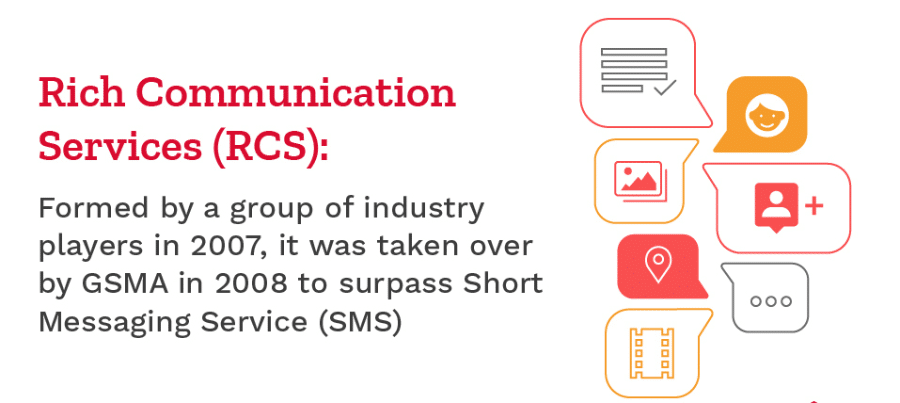
RCS enables highly personalized messaging, enhancing the customer experience:
- Dynamic Content: Tailor messages based on customer preferences and behavior.
- Interactive Elements: Include buttons and links that allow customers to take immediate action, such as making a purchase or booking an appointment.
- Rich Media: Use images, videos, and animations to create engaging and visually appealing messages.
Real-time Communication
Real-time communication is a significant advantage of RCS:
- Instant Feedback: Customers can respond to messages and interact with your business in real-time.
- Immediate Updates: Share important updates and notifications instantly, ensuring timely communication.
Best Practices for Implementing RCS
To make the most of RCS, consider these best practices for crafting effective messages:
- Clear Call to Action: Ensure every message has a clear and compelling call to action.
- Rich Media Use: Utilize high-quality images, videos, and interactive elements to enhance engagement.
- Personalization: Personalize messages to make them relevant to the recipient.
Ensuring Compatibility
Ensure compatibility to provide a seamless RCS experience:
- Device Support: Verify that your target audience’s devices support RCS.
- Carrier Support: Ensure your carrier supports RCS and has implemented the Universal Profile.
Monitoring and Optimization
Regularly monitor and optimize your RCS campaigns:
- Analytics: Use analytics tools to track performance and identify areas for improvement.
- A/B Testing: Conduct A/B testing to determine the most effective message formats and content.
- Feedback Loop: Collect feedback from customers to continuously improve your messaging strategy.
Future Prospects of RCS
As more carriers and manufacturers adopt RCS, its global reach will expand:
- Standardization: Continued efforts towards standardization will ensure consistent experiences across different networks and devices.
- Carrier Collaboration: Increased carrier collaboration will drive broader adoption and improved interoperability.
Technological Advancements
Future technological advancements will further enhance RCS capabilities:
- AI Integration: AI-powered features like chatbots and predictive text will improve customer interactions and automate responses.
- Enhanced Security: Implementing end-to-end encryption and other security measures will address privacy concerns and build trust among users.
- 5G Networks: The rollout of 5G networks will enable faster and more reliable RCS communication, supporting richer media and real-time interactions.
Industry-Specific Innovations
Expect to see industry-specific innovations as RCS evolves:
- Healthcare: Advanced telehealth solutions and remote patient monitoring through RCS.
- Retail: Enhanced e-commerce experiences with augmented reality (AR) and virtual reality (VR) integrations.
- Education: Interactive learning platforms and virtual classrooms utilizing RCS capabilities.
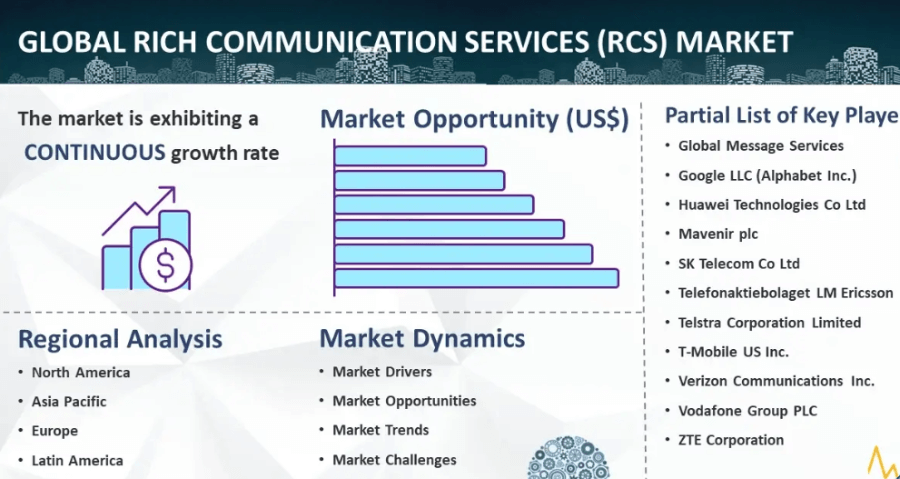
Final Verdict!
Rich Communication Services (RCS) represents a significant evolution in mobile messaging, offering features that bring it on par with or surpass popular messaging apps. With its recent adoption by Apple and its extensive use by Android, RCS is set to become a universal standard, bridging the gap between different platforms and enhancing communication.
Providers like YepText are leading this revolution, offering businesses innovative ways to engage customers through rich, interactive messaging. As we look to the future, RCS promises to continue evolving, integrating with new technologies, and setting new standards for mobile communication.
Embrace the future of messaging with RCS today and experience the rich, interactive features that can transform personal and business communication.
